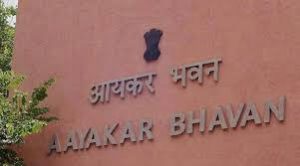 MCA introduces Condonation of Delay Scheme 2018 (CODS-2018) for defaulting companies to file its overdue returns/documents due for filing till 30.06.2017 by temporarily activating DIN of disqualified directors
MCA introduces Condonation of Delay Scheme 2018 (CODS-2018) for defaulting companies to file its overdue returns/documents due for filing till 30.06.2017 by temporarily activating DIN of disqualified directors
General Circular No………./2017
File No. 02/04//2017
Ministry of Corporate Affairs
5thFloor,‘A’ Wing, Shastri Bhawan
Dr.Rajendra Prasad Road,
NewDelhi-110001.
To
All Regional Directors,
All Registrar of Companies,
All Stakeholders.
Sir,
Subject: Condonation of Delay Scheme 2018
Whereas,companies registered under the Companies Act,2013 (or its predecessor Act) are inter-alia required to file their Annual Financial statements and Annual Returns with the Registrar of Companies and non-filing of such reports is an offence under the said Act.
Whereas, section 164(2) of the Act read with section 167 of the Companies Act, 2013 [the Act], which provisions were commenced with effect from 01.04.2014, provide for disqualification of a director on account of default by a company in filing an annual return or a financial statement for a continuous period of three years.
Whereas, Rule 14 of the Companies (Appointment and Qualification of Directors) Rules, 2014 further prescribes that every director shall inform to the company concerned about his disqualification, if any, under section 164(2), in form DIR-8.
Whereas, consequent upon notification of provisions of section 164(2), Ministry of Corporate Affairs (MCA) had launched a Company Law Settlement Scheme 2014 providing an opportunity to the defaulting companies to clear their defaults within the time period specified therein and following the due process as notified.
Whereas, MCA in September 2017, identified 3,09,614 directors associated with the companies that had failed to file financial statements or annual returns in the MCA21 online registry for a continuous period of three financial years 2013-14 to 2015-16 in terms of provisions of section 164(2) r/w 167(1)(a) of the Act and they were barred from accessing the online registry and a list of such directors was published on the website of MCA.
Whereas, as a result of above action, there have been a spate of representations from industry, defaulting companies and their directors seeking an opportunity for the defaulting companies to become compliant and normalize operations.
Whereas, certain affected persons have also filed writ petitions before various High Courts seeking relief from the disqualification.
Whereas, with a view to giving an opportunity for the non-compliant, defaulting companies to rectify the default, in exercise of its powers conferred under sections 403, 459 and 460 of the Companies Act, 2013, the Central Government has decided to introduce a Scheme namely “Condonation of Delay Scheme 2018” [CODS-2018] as follows.
- The scheme shall come into force with effect from 01.01.2018 and shall remain in force up to 31.03.2018
- Definitions – In this scheme, unless the context otherwise requires, –
(i) “Act” means the Companies Act, 2013 and Companies Act, 1956 (where ever applicable);
(ii) ‘overdue documents’ means the financial statements or the annual returns or other associated documents, as applicable, in the case of a defaulting company and refer to documents mentioned in paragraph 5 of the scheme.
(iii) “Company” means a company as defined in clause of 20 of section 2 of the Companies Act, 2013;
(iv) “Defaulting company” means a company which has not filed its financial statements or annual return as required under the Companies Act, 1956 or Companies Act, 2013, as the case may be, and the Rules made thereunder for a continuous period of three yea
(v) “Designated authority” means the Registrar of Companies having jurisdiction over the registered office of the company.
- Applicability: – This scheme is applicable to all defaulting companies (other than the companies which have been stuck off/whose names have been removed from the register of companies under section 248(5) of the Act). A defaulting company is permitted to file its overdue documents which were due for filing till 30.06.2017 in accordance with the provisions of this Scheme.
- Procedure to be followed for the purposes of the scheme:– (1) In the case of defaulting companies whose names have not been removed from register of companies,-
(i) The DINs of the disqualified directors de-activated at present shall be temporarily activated during the validity of the scheme to enable them to file the overdue documents.
(ii) The defaulting company shall file the overdue documents in the respective prescribed eForms paying the statutory filing fee and additional fee payable as per section 403 of the Act read with Companies (Registration Offices and fee) Rules, 2014 for filing these overdue documents.
(iii) The defaulting company after filing documents under this scheme, shall seek condonation of delay by filing form e-CODS 2018 attached to this scheme along with a fee of 30,000/- (Rs. Thirty Thousand only) as prescribed under the Companies (Registration Offices and Fee) Rules, 2014 well before the last date of the scheme.
(iv) The DINs of the Directors associated with the defaulting companies that have not filed their overdue documents and the eform CODS, and these are not taken on record in the MCA21 registry and are still found to be disqualified on the conclusion of the scheme in terms of section 164(2)(a) r/w 167(1)(a) of the Act shall be liable to be deactivated on expiry of the scheme period.
(2) In the event of defaulting companies whose names have been removed from the register of companies under section 248 of the Act and which have filed applications for revival under section 252 of the Act up to the date of this scheme, the Director’s DIN shall be re-activated only NCLT order of revival subject to the company having filing of all overdue documents.
- Scheme not to apply for certain documents – This scheme shall not apply to the filing of documents other than the following overdue documents:
(i) Form Number 20B/MGT-7- Form for filing Annual return by a company having share capital.
(ii) Form 21A/MGT-7- Particulars of Annual return for the company not having share capital.
(iii) Form 23AC, 23ACA, 23AC-XBRL, 23ACA-XBRL, AOC-4, AOC-4(CFS), AOC (XBRL) and AOC-4(non-XBRL) – Forms for filing Balance Sheet/Financial Statement and profit and loss account.
(iv) Form 66- Form for submission of Compliance Certificate with the Registrar.
(v) Form 23B/ADT-1- Form for intimation for Appointment of Auditors.
- The Registrar concerned shall withdraw the prosecution(s) pending if any before the concerned Court(s) for all documents filed under the scheme. However, this scheme is without prejudice to action under section 167(2) of the Act or civil and criminal liabilities, if any, of such disqualified directors during the period they remained disqualified.
- At the conclusion of the Scheme, the Registrar shall take all necessary actions under the Companies Act, 1956/ 2013 against the companies who have not availed themselves of this Scheme and continue to be in default in filing the overdue documents
Yours faithfully,
(KMS. Narayanan)
Assistant Director (Policy)
MCA-CODs-2018.







